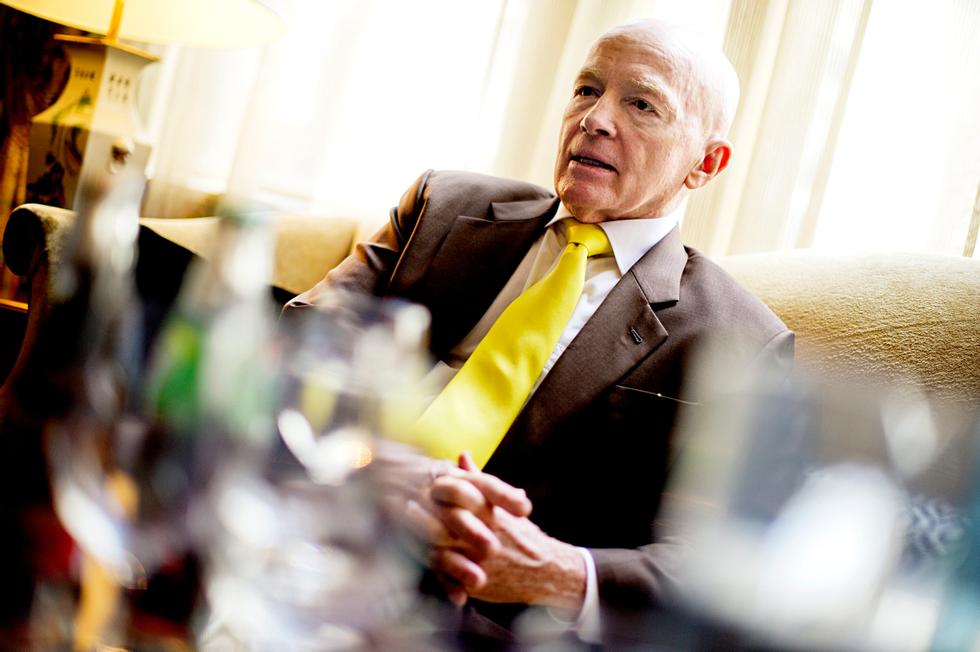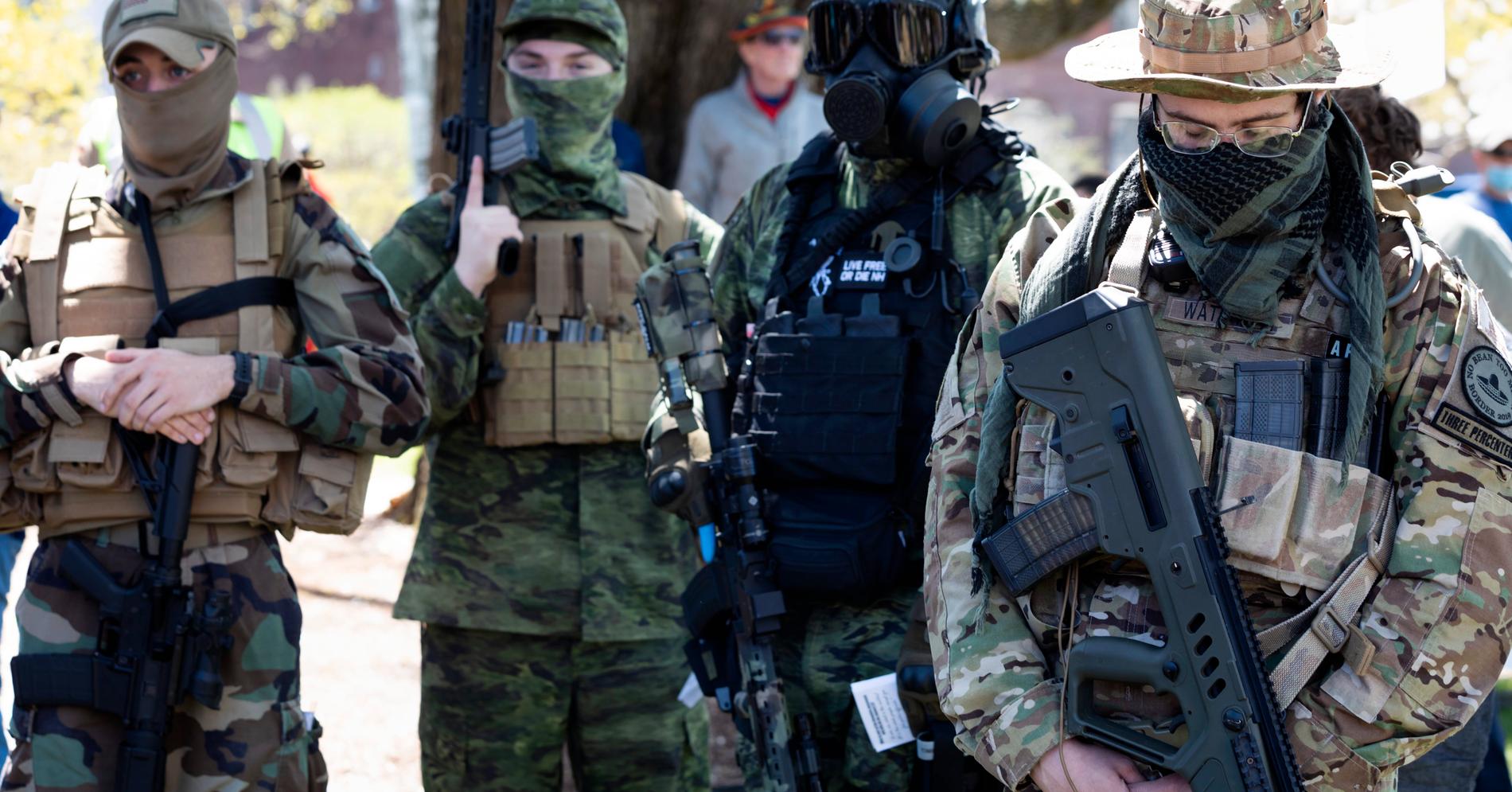Politikk, religion og samfunn President Donald J. Trump - Quo vadis? (Del 2)
- Trådstarter Høvdingen
- Startdato
Diskusjonstråd Se tråd i gallerivisning
-
Franklin Roosevelt took a frozen banking system and created the New Deal. Ronald Reagan used the sharp recession of the early 1980s to seriously damage unions. In January 2009, Obama had overwhelming Democratic majorities in Congress, $350 billion of no-strings-attached bailout money and enormous legal latitude. What did he do to reshape a country on its back?
First, he saved the financial system. A financial system in collapse has to allocate losses. In this case, big banks and homeowners both experienced losses, and it was up to the Obama administration to decide who should bear those burdens. Typically, such losses would be shared between debtors and creditors, through a deal like the Home Owners Loan Corporation in the 1930s or bankruptcy reform. But the Obama administration took a different approach. Rather than forcing some burden-sharing between banks and homeowners through bankruptcy reform or debt relief, Obama prioritized creditor rights, placing most of the burden on borrowers. This kept big banks functional and ensured that financiers would maintain their positions in the recovery. At a 2010 hearing, Damon Silvers, vice chairman of the independent Congressional Oversight Panel, which was created to monitor the bailouts, told Obama’s Treasury Department: “We can either have a rational resolution to the foreclosure crisis, or we can preserve the capital structure of the banks. We can’t do both.”
Second, Obama’s administration let big-bank executives off the hook for their roles in the crisis. Sen. Carl Levin (D-Mich.) referred criminal cases to the Justice Department and was ignored. Whistleblowers from the government and from large banks noted a lack of appetite among prosecutors. In 2012, then-Attorney General Eric Holder ordered prosecutors not to go after mega-bank HSBC for money laundering. Using prosecutorial discretion to not take bank executives to task, while legal, was neither moral nor politically wise; in a 2013 poll, more than half of Americans still said they wanted the bankers behind the crisis punished. But the Obama administration failed to act, and this pattern seems to be continuing. No one, for instance, from Wells Fargo has been indicted for mass fraud in opening fake accounts.
Third, Obama enabled and encouraged roughly 9 million foreclosures. This was Geithner’s explicit policy at Treasury. The Obama administration put together a foreclosure program that it marketed as a way to help homeowners, but when Elizabeth Warren, then chairman of the Congressional Oversight Panel, grilled Geithner on why the program wasn’t stopping foreclosures, he said that really wasn’t the point. The program, in his view, was working. “We estimate that they can handle 10 million foreclosures, over time,” Geithner said — referring to the banks. “This program will help foam the runway for them.” For Geithner, the most productive economic policy was to get banks back to business as usual
Nor did Obama do much about monopolies. While his administration engaged in a few mild challenges toward the end of his term, 2015 saw a record wave of mergers and acquisitions, and 2016 was another busy year. In nearly every sector of the economy, from pharmaceuticals to telecom to Internet platforms to airlines, power has concentrated. And this administration, like George W. Bush’s before it, did not prosecute a single significant monopoly under Section 2 of the Sherman Act. Instead, in the past few years, the Federal Trade Commission has gone after such villains as music teachers and ice skating instructors for ostensible anti-competitive behavior. This is very much a parallel of the financial crisis, as elites operate without legal constraints while the rest of us toil under an excess of bureaucracy
With these policies in place, it’s no surprise that Thomas Piketty and others have detected skyrocketing inequality, that most jobs created in the past eight years have been temporary or part time, or that lifespans in white America are dropping . When Democratic leaders don’t protect the people, the people get poorer, they get angry, and more of them die.
Dette er sikkert riktig, og er definitivt en (av flere) faktorer som førte til at Donald slo Hillary. Og like interessant er jo også det som skjedde i forkant av kollapsen. Michael Lewis har skrevet godt om dette (the Big Short). La meg si det sånn, mindre regulering er ikke løsningen på dette, men den løsningen amerikanerne enkelt sagt har gjort.Ccruiser
Gjest
Litt kontraproduktivt da å stemme på en kandidat som løste opp de få reguleringene som kom på plass da?UUtgatt24668
Gjest
Det er vel trygt å si at flere banker i USA var drevet av en kortsiktig grådighetskultur som selv de har innsett ikke er bærekraftig. Kortsiktig profitt har gitt høye bonuser. Dette er i stor grad lagt om og det er flere reguleringer på plass men viser på samme tid at markedet alene ikke regulerer seg selv. Løsningen er ikke å straffe men å endre reguleringer fram i tid.Ha. I likhet med Erna satser du på den ubegrensede rasjonalitet i møtet med noe som kan ramme andre enn en selv. Selvregulering i situasjoner der de kortsiktige gevinstene er store har jeg særdeles begrenset tro på.Sjørøveri i offentlig regi.

USA stanset fire iranske oljetankere på vei til Venezuela
USA bekrefter at de har stanset fire iranske oljetankere på vei til Venezuela og beslaglagt oljen som var om bord. finansavisen.no
finansavisen.no
USA stanset fire iranske oljetankere på vei til Venezuela
USA bekrefter at de har stanset fire iranske oljetankere på vei til Venezuela og beslaglagt oljen som var ombord.HHardingfele
Gjest
Nothing to see here, folks. Just move on now, right along to where you were headed. Thank you.
Hvis Trump lar Jared Kushner svare på spørsmål frem til valget så er det mulig du får rett.Trump vinder det valg. Nogen som vil vædde? Det går som for 4 år siden.
Eneste måten Trump kan vinne på er vha valgfusk. Og han har allerede startet fusket. Han demonterer postvesenet slik at det ikke skal takle stemmegivningen.Trump vinder det valg. Nogen som vil vædde? Det går som for 4 år siden.Sist redigert:
Nej Biden mister stille og roligt tilslutningen fra vælgerne.Eneste måten Trump kan vinne på er vha valgfusk. Og han har allerede startet fusket. Han demonterer postvesenet slik at det ikke skal takle stemmegivningen.Forlater Facebook
lm.facebook.com
- Ble medlem
- 28.09.2016
- Innlegg
- 12.383
- Antall liker
- 13.407
Det er i ferd med å danne seg en ganske stor fraksjon blant Republikanerne, som offentlig sier de vil stemme på Biden for å bli kvitt Trump. Altså... Det er så ille at gamle, livslange Republikanere stemmer på en kandidat de ikke ønsker, for å bli kvitt sin egen kandidat. Dersom ikke det forteller noe om hvor galt dette er, så vil ingenting gjøre det.
Trump på sin side hevder at den eneste måten han kan tape valget, er om det er rigget. Han har nok levert en løgn, som vanlig. Den eneste måten han kan vinne valget på, er å rigge det, nemlig. Og det er han i full gang med.
Du gjør som de fleste andre trømpærne, du overser fakta du blir presentert for og begynner å snakke om noe annet. Intet nytt under solen...Nej Biden mister stille og roligt tilslutningen fra vælgerne.- Ble medlem
- 28.09.2016
- Innlegg
- 12.383
- Antall liker
- 13.407
Tross alt har han sagt offentlig her på HFS at han ikke er interessert i å finne fakta. Han finner det han ønsker finne på Facebook. Da blir det som det blir.Du gjør som de fleste andre trømpærne, du overser fakta du blir presentert for og begynner å snakke om noe annet. Intet nytt under solen...

 Du har nå muligheten til å besvare argumentene? Komme med fakta som understøtter din fremstilling?
Du har nå muligheten til å besvare argumentene? Komme med fakta som understøtter din fremstilling?
Bullshit er liksom ikke et argument....eller?
Note: ser ut som den faktasøkende Drossel ikke tok sin mulighet...hvilken overraskelse!Sist redigert:- Ble medlem
- 28.09.2016
- Innlegg
- 12.383
- Antall liker
- 13.407
Jeg har lukket mit fjernsyn signal ned indtil December. Men følger flittigt med på Facebook. Synes det er meget mere orienterede. TV kanalerne får ordrer om hvad de ikke må tage op i udsendelserne. Det er totalt topstyret.
Fakta er etterprøvbare, som nevnt. Det ovenstående er utelukkende en konspirasjonsteori, og må behandles deretter.Drossel skrev:BullshitRrr30629
Gjest
Frykt for ny borgerkrig i USA
USA: Det er frykt for at presidentvalget 3. november kan bli en utløsende faktor for politisk vold.www.aftenbladet.no
I mitt hode er det på grensen til forræderi å underminere statsforvaltningen og hele demokratiet på denne måten. Håper republikanerne har mange nok reflekterte og hederlige mennesker blant sine velgere til at dette blir gjennomskuet og Donald avkledd.It is what it is. Jeg stålsetter meg for fire nye år med denne narsissistiske, bøllete, inkompetente halvtomsingen i jobben som verdens mektigste statsoverhode.
Det mest interessante vil være om D J Tramp taper med absolutt minste margin. Da blir det Show da....
På vegne av alle med hodet på rett stilk i resten av verden håper jeg det ikke skjer og at man blir kvitt utysket fort som faen....Sist redigert:Trump får hjelp fra investor
Bl.a.
Mark Mobius: – Biden-seier vil bli katastrofalt for aksjemarkedet
– Biden-seier vil bli katastrofalt for aksjemarkedet finansavisen.no
finansavisen.no
Nå kommer imidlertid legendeinvestor Mark Mobius presidenten til unnsetning og mener at å slutte nedstengningene av samfunnet vil bidra til å løfte økonomien igjen.
– En Trump-seier vil definitivt gi aksjemarkedet medvind. Trumps mål er å få folk tilbake i arbeid, redusere arbeidsledigheten og generelt pumpe opp økonomien, sier Mark Mobius til Financial News.
På den annen side mener Mobius at en seier for Joe Biden og hans politiske partner Kamala Harris vil være «katastrofalt».- Ble medlem
- 13.10.2005
- Innlegg
- 21.457
- Antall liker
- 6.882
Det vil sikkert være katastrofalt for Mobius.22xJ
Gjest
Et mer konkret svar enn det, skal det vel godt gjøres og få gjort...
-
Laster inn…
Diskusjonstråd Se tråd i gallerivisning
-
-
Laster inn…








